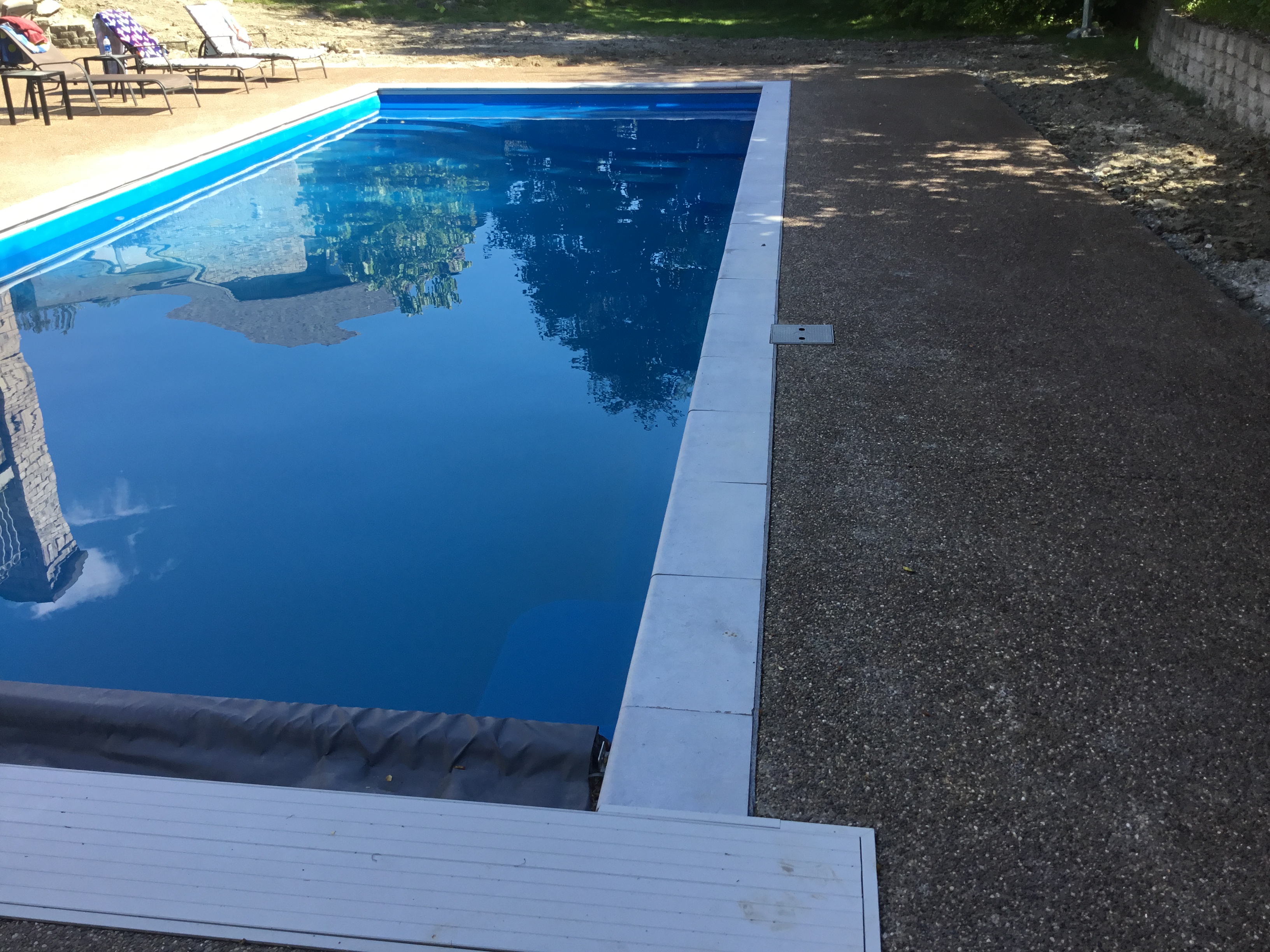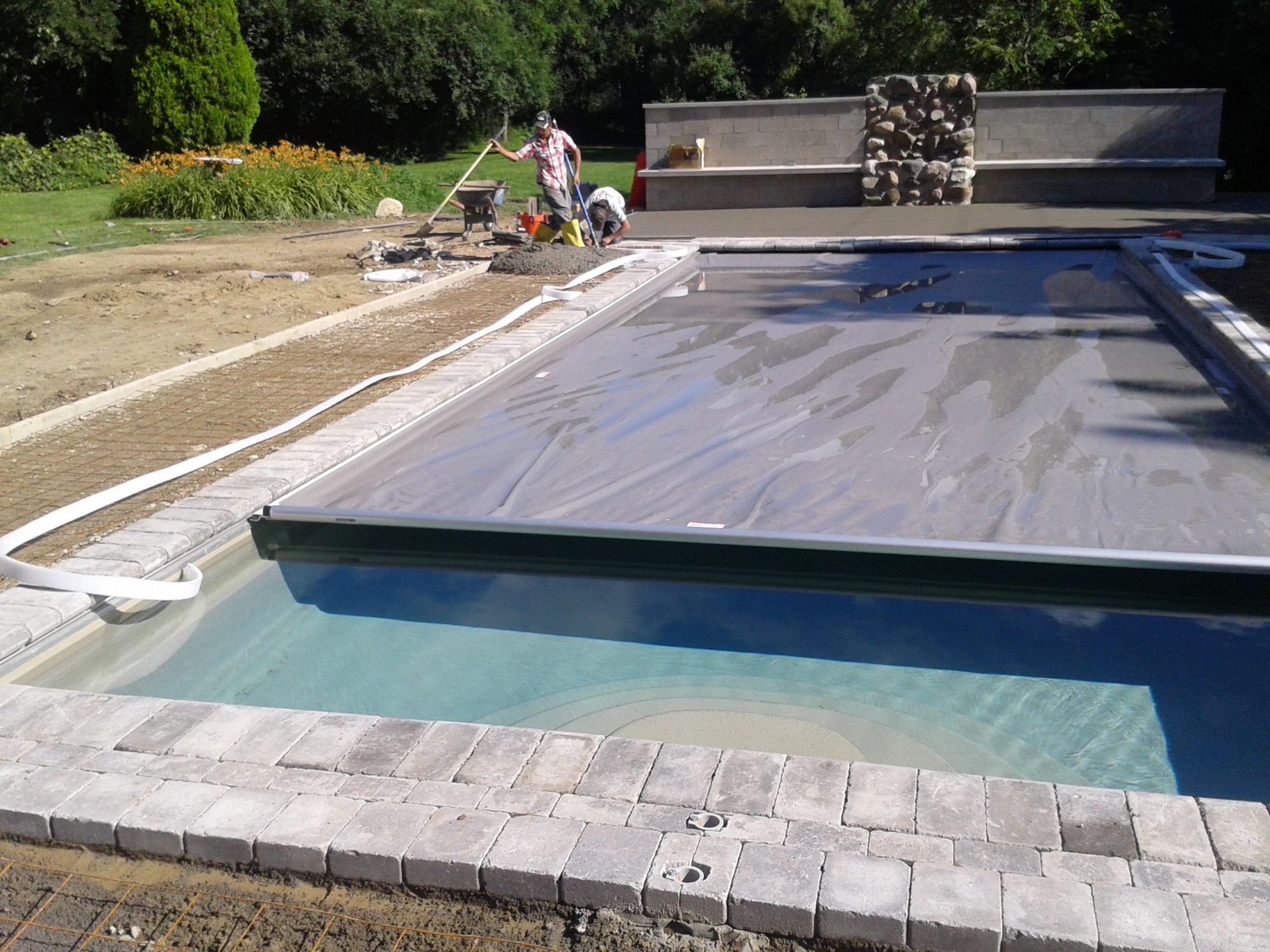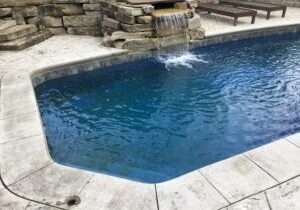2-28-2025 APC - AUTOMATIC POOL COVERS INSTALLED IN MICHIGAN


Is Your Fiberglass Swimming Pool Company Licensed in Clarkston MI?
Ask to see if they have a federal identification number that designates it as a real business, whether they have completed any certification program offered in your state, and if they are insured. Their qualification statement should list references, licensing information and association membership. Ask to see there builders license.
Does the inground fiberglass swimming pool company appear professional?
What kind of fiberglass swimming pool services do they offer in Oakland County Michigan
How are their communication skills with your swimming pool designer
Do they give you a pool contract?
Can they provide customer references and referrals in Michigan?
When deciding how to choose a inground Thursday Fiberglass Swimming Pool Contractor research the companies background carefully, noting how long it has been in business, affiliations, and contact information.
Visit with a few Custom inground fiberglass pool contractors to see which one can meet your needs. Get everything in writing, including costs, services and expected timeline of projects. Work out a schedule in advance for the installing of your Thursday fiberglass swimming pool in Michigan.
When finding a fiberglass swimming pool installer for your needs, speak with two or three professionals to get a feel for the company. Are customer service members courteous, reflecting a positive business attitude? Make sure the fiberglass pool company offers the type of services you need.
FIBERGLASS POOL INSTALLED IN OAKLAND, MI
Tips for a Healthy Lawn and Garden
When soils and plants are healthy, plants naturally resist disease and pests -- allowing gardeners and lawnowners to reduce (or avoid) the use of pesticides and quick-release fertilizers. Healthy lawn and garden practices often save homeowners time and effort in the long-run and promote a beautiful landscape.
Healthy lawn and garden principles were developed by professionals familiar with excellent horticulture practices. . . and with knowledge of Southeast Michigan soils and growing conditions. The principles apply to all types of plants. More specific practices have been identified for lawns, gardens, trees, and other landscape areas. Lawn care tips and gardening tips are presented in this section.
Healthy Lawn and Garden Principles
Principle #1 Build fertile soils with organic matter.
Principle #2 Select plants suited for the site and climate conditions -- expand your understanding of "Right Plant in the Right Place."
Principle #3 Plant for diversity -- to encourage beneficial insets and pest resistance.
Principle #4 Provide nutrients and water to sustain healthy plants.
Principle #5 Recycle yard clippings on site.
Principle #6 Minimize the use of insecticides, herbicides, and other pesticides. Practice Integrated Pest Management (IPM).

Healthy Lawn Tips
Feed your lawn . . . with grass clippings! Plants need certain nutrients to grow and many times we think fertilizer is the only solution. Think again. Grass clippings contain valuable nutrients and can decompose quickly into the soil. With grass recycling, artificial fertilizers can be significantly reduced -- by 30% to 40% or more. Mix extra grass clippings with leaves and soil to make a backyard compost pile (see section on composting) or use the clippings as a garden mulch.
Tips for grass recycling
Set mower blade at the highest setting, leaving grass blades 3 inches tall if possible. Tall grass encourages deep roots and also shades out crabgrass and low-growing weeds.
Cut no more than the top 1/3 of the grass blade.
Let the short grass blades fall back onto the lawn.
Sharpen mower blades several times during the growing season. A dull mower blade will tear grass and provide entry port for diseases.
Only mow when the grass is dry.
Lawn Watering
All lawns in MI require 0.5 to 1.5 inches of water per week. That means only a 10-15 minute watering during dry weather for many home sprinkling systems.
Watering Tips
Water lightly and frequently. Grass roots are short (often less than 4" long) and can't absorb the excess water. Light, frequent watering also reduces the stress to the grass plant, which reduces the potential for disease and insect damage. Water sparingly after any fertilizer application to avoid causing contaminated runoff.
Fertilize in September or October to promote root growth rather than top growth. Deep roots withstand drought and resist disease. Strong roots store food produced in the grass blades for use in early spring. Use fertilizers sparingly. Over fertilizing actually encourages certain insects and diseases and increases maintenance needs.
- Separate fertilizers from pesticides. "Weed and feed" combined products often add unnecessary herbicides to the landscape.
- Use compost as an alternative to fertilizer. Compost contributes organic matter and gradually releases nutrients to the soil.
- Do not apply fertilizer within 50 feet of a water body, including streams, ponds and impoundments.
- Avoid applying fertilizer to paved surfaces. If any fertilizer is spread on sidewalks or driveways, sweep it off before watering
Lawn Fertilization
Our lawns can pollute the Rouge. Fertilizers, pesticides, and herbicides may be the solutions for a beautiful lawn and garden, but they can cause environmental problems to the river. Fertilizers contain nitrogen and phosphorus, two elements which increase plant growth in water as well as on land. When fertilizer gets into the river, it can cause excess plant and algae growth which robs the oxygen from the water, causing fish and other aquatic life to suffocate and die!
Fertilizer Tips
Select slow--release fertilizers to gradually feed plants. These products should contain little or no phosphorus. The numbers on the labels of fertilizers will help you identify which are low in phosphorus. The numbers indicate the percentages of nitrogen-phosphorous-and potassium as potash.
Low phosphorous brands have ratings on their labels such as 23-0-6, 30-4-4 or 26-4-4.Fertilizers containing abundant nitrogen (46-0-0, 33-0-0) are not recommended because they are highly soluble and can readily wash away or enter groundwater
Tips for choosing a lawn care company
Ask neighbors and friends who have dealt with the company if they were satisfied with the service they received. Call the Michigan
Department of Agriculture at (517) 373-1087 to see if the company has a history of violations.
Make sure the company is affiliated with a professional lawn care association. This helps members stay informed of new developments in the lawn care field.
Find out if the company uses integrated pest management, or "IPM", an approach that reduces pesticide use by combining it with other, non-chemical methods of pest control.
The company should readily supply you with information on the types of pesticides it applies to your lawn, and what health and environmental risks may be presented by their use.
Lush lawns require lots of care. Instead of doing it themselves, many people now hire lawn care companies to apply insecticides and herbicides that eliminate pesky insects and weed growth.
In spring, companies usually develop a treatment schedule with the homeowner that requires several applications over the course of the growing season.
Michigan now has new regulations that make it easier for consumers to work with lawn care companies. The new rules governing pesticide use should result in improved service, clearer communication and expanded opportunities for consumer choice.
The following reflect the new rules. Both you and the professional pesticide applicator should be aware of these:
- Contracts between you and your pesticide applicator are now limited to one year, unless a specific expiration date is included in the written contract.
- Before applying a pesticide anywhere on your property, an applicator must have an oral or written agreement regarding the work to be done and the pesticide(s) to be used.
- In addition to the consent, every agreement must contain the name, address and telephone number of the company performing the service, as well as the approximate schedule and frequency of applications.
At each application, the company must provide the following information to the consumer:
- Company name, address and phone number
- General description of the pest(s) to be controlled
- A list of pesticide(s) to be used
- The time(s) and date(s) of application
- Any precautionary warnings about potential health hazards to humans, animals and the environment
- If you ask for it, the applicator must provide product labels, safety data sheets, Environmental Protection Agency fact sheets and a document that describes the rate of application of the active ingredients in the product(s).
Before or at the time of the first application, the company must provide you with the following risk and benefit information in writing:
- Definition of pesticide
- How pesticides work
- A description of the environment in which the pesticide will be applied
- Why pesticides are used
- Instructions for physician contact in the event of an unusual reaction
- Toxicity of the pesticide being used
- Amount or rate of pesticide applied
- How the label directs the pesticide be applied
- General exposure information
- Common sense tips on protecting human and animal health
- What happens to pesticides in the environment
- How to prepare a site before the pesticide is applied
The new regulations also require the Michigan Department of Agriculture to maintain a voluntary registry of persons who must be notified before any pesticide is used on neighboring lawns and trees. To be placed on the list, you must provide the department with a valid physician's statement regarding the medical reason for notification.
If you have any questions about lawn care companies or wish to know more about the regulations, call the Michigan Department of Agriculture's Pesticide and Plant Pest Management Division (3PM) at 517-373-1087.

